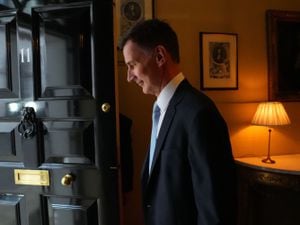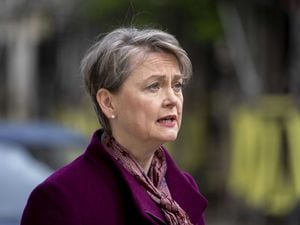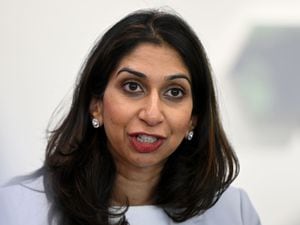PM defends Universal Credit overhaul after vote scrapped
Universal Credit replaces six existing benefits.

Theresa May has defended an overhaul of the Government’s controversial Universal Credit (UC) programme, saying it was always the plan that the scheme would change as it was implemented.
And the Prime Minister said it would still be fully rolled out by the original introduction date of 2023, despite widespread criticism of the extension of the flagship welfare reform.
She was speaking after Work and Pensions Secretary Amber Rudd moved to scrap an imminent Commons vote on plans allowing all existing claimants of relevant benefits to be moved onto the new all-in-one payment.
Instead, Ms Rudd plans to seek approval to move just 10,000 claimants onto UC to monitor the way the system works.
Influential committees in both Houses of Parliament had raised concerns about the plan to move around three million claimants onto UC and the Government faced losing a Commons vote on the “managed migration” programme.
Allies of the Work and Pensions Secretary insisted the decision to overhaul the migration was not due to fear of a Tory revolt but because it was the right way to handle the change.
The change comes after Ms Rudd took over from Esther McVey at the Department for Work and Pensions in November.
A source said she had taken a “no-holds-barred” approach and wanted a “fresh mandate” from Parliament for the roll-out of UC once it had been trialled.
The Observer reported she is expected to announce the proposed pilot scheme within days.
The Cabinet minister tweeted this morning, saying: “UC is a vital reform so I want to roll it out carefully. I’m glad charities and colleagues are backing my plans to move and monitor 10,000 people from the old system.
“It means UC can proceed on time and be fit for purpose: helping people work and getting support to people quickly.”
And Mrs May, speaking to BBC One’s The Andrew Marr Show, said: “Throughout the introduction of Universal Credit we’ve been clear that we would roll it out as a steady process, learn as we go along, make changes, we’ve done that.
“We’ll be saying more about it in the coming weeks but it will be fully rolled out by 2023 as was originally intended.”
But Labour’s shadow work and pensions secretary Margaret Greenwood said: “Hopefully the Government is waking up to the devastating implications of its so-called ‘managed migration’ to Universal Credit.”
She said the policy is “deeply flawed” and the Government needs to halt the roll-out “as a matter of urgency”.
The SNP gave a cautious welcome to news of the delay, with work and pensions spokesman Neil Gray saying: “Any pause to the botched roll-out of Universal Credit is welcome, but it shouldn’t have taken this long for the Tories to listen to the SNP and the huge number of anti-poverty charities who have condemned the system.”
He added that the Tories “must now take this opportunity to overhaul the system and fix the problems that have caused so much misery in Scotland and across the UK”.
But a Whitehall source said: “This is a responsible course of action from the Government to ensure UC is working in the best possible way.”
The move has also been welcomed by charities such as Shelter and Mind, as well as the Resolution Foundation and Joseph Rowntree Foundation.
Universal Credit replaces six existing benefits – Employment Support Allowance, Income Support, income-based Jobseeker’s Allowance, Housing Benefit, Working Tax Credit and Child Tax Credit – with a single payment.





